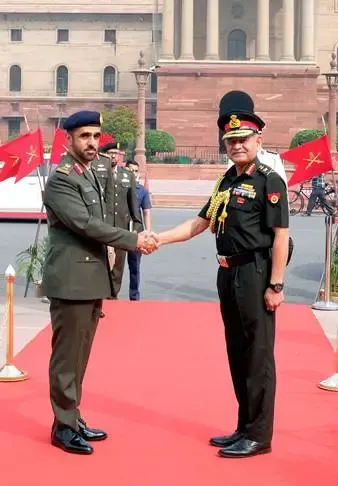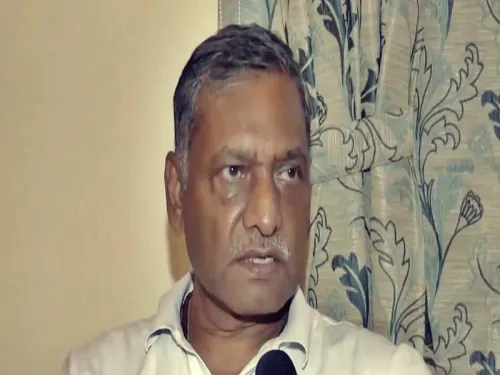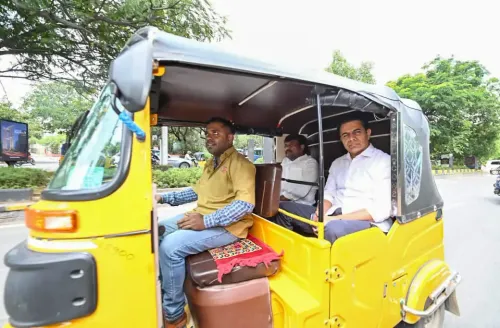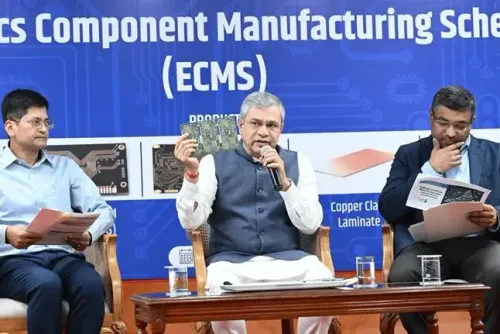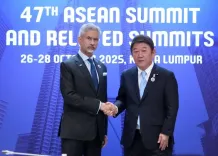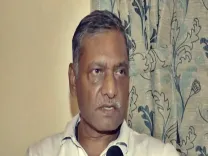Muslim Leaders of JD(U) Stand by Nitish Kumar Amidst Waqf Bill Controversy
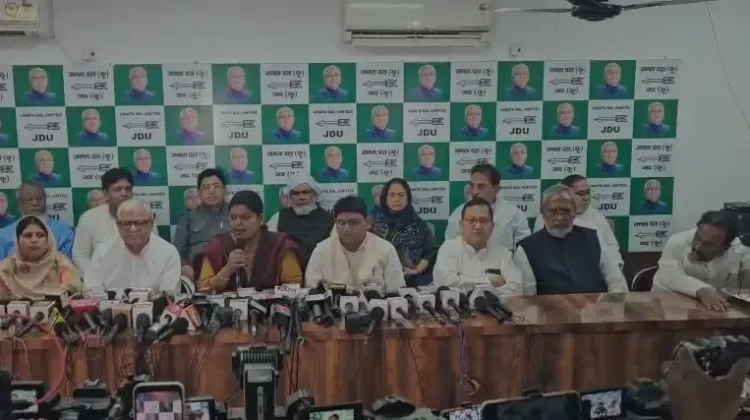
Synopsis
Key Takeaways
- Muslim leaders of JD(U) backed Nitish Kumar.
- Waqf Amendment Bill includes five suggestions from the party.
- Concerns about religious sites being protected.
- Resignations from several Muslim leaders signal unrest.
- Visible dissent within the party during the press conference.
Patna, April 5 (NationPress) In an effort to address rising dissatisfaction, prominent Muslim figures of the Janata Dal (United) convened at a joint press briefing here on Saturday to advocate for Chief Minister Nitish Kumar and reinforce their endorsement of the Waqf Amendment Bill.
This display of solidarity emerges amidst a wave of resignations from Muslim officials protesting the party's position on the bill.
Speaking to the press at the party headquarters, JDU’s state spokesperson Anjum Ara aimed to alleviate concerns. She stated, “The five recommendations we made were accepted by the Joint Parliamentary Committee and included in the bill. No mosque, dargah, or religious site will be affected. As long as Nitish Kumar remains in power, these locations will be safeguarded.”
Ashraf Ansari, the president of the party’s Minority Cell, echoed similar thoughts. He remarked, “The bill was supported only after our issues were considered. Those instilling fear are misleading the public. Nitish Kumar has always advocated for minorities, and we have faith in his leadership.”
Alongside them were Legislative Councillors Ghulam Gaus, Afaque Ahmad Khan, and Khalid Anwar, former MPs Ashfaq Karim and Kahkashan Parveen, former Council Chairman Salim Parvez, Sunni Waqf Board Chairman Md Irshadullah, Shia Waqf Board Chairman Syed Afzal Abbas, Minority Cell in-charge Iqbal Haider, former MLA Master Mujahid Alam, Abdul Qayyum Ansari, and several others.
Nevertheless, the endeavor to showcase unity was undermined by evident signs of discord. Ghulam Gaus, a notable critic of the bill, was present on stage but not permitted to speak. Other dissenting voices were similarly present yet marginalized.
Gaus appeared noticeably uncomfortable, remaining silent as others spoke. The press briefing concluded abruptly with leaders departing without fielding questions.
Despite the party’s public narrative, the backlash persists. At least seven Muslim leaders of the JD(U) have resigned in protest, including M. Raju Nair (former state secretary), Shahnawaz Malik (Minority Cell state secretary), Nadeem Akhtar (Bettiah district VP), Md. Tabrez Siddiqui (Minority Cell general secretary), Md. Dilshan Rain (Bhojpur district member), Mohammad Kasim Ansari (former Dhaka Assembly candidate), and Mohammad Feroz Khan (Nawada district secretary).
Although the party has dismissed these resignations as minor, their collective departure has highlighted increasing unease among the JD(U)’s grassroots Muslim base.

